Don’t Plan Your Events Like It’s 2019 Again!
I’ve noticed a really familiar feeling with many events taking place this season. But that’s not always a good thing. As events return in person, I’m finding some event concepts appear very similar to when they last took place in a physical format. While attendees are excited to meet in person, once inside, the content on offer feels stale. Dated. Formulaic.
In too many cases, organizers have added only a limited amount of imagination in the event concept itself. Beyond maybe adding a few lifestreams for remote attendees, the same formats predominate, keynote, breakout, topics that have appeared every year previously. The event’s design doesn’t reflect what we’ve learned from the past pandemic years, where event attendees clamored for more personalization, interaction and customization. Instead, back to “normal”.
Presenting the same 2019 event repackaged for 2022 is not going to work with today’s audiences. This approach is negligent to the broader changes that have been taking place in the industries of the B2B clients for which the event industry serves. The pandemic has caused many to completely rethink how they connect with their customers, audiences, and their teams. It requires event professionals serving those industries to know how their client’s needs have transformed– and to retool their event to suit their changing landscape. For some events, the changing ways that brands have promoted their products have led to cancellations, even for events that have had a market presence for decades.
Some key things we’re noticing:
- An enthusiastic return to highly curated business networking events. Intimate settings, designed to strengthen client and stakeholder relationships are a big draw at the moment. After so long apart, just sharing a meal together with clients or business partners feels very fresh and new.
- Hybrid events with a VIP- in-person experience. Hybrid events are here to stay, but the experience for those joining on location is now more highly curated and bespoke than before. Expect a smaller number of attendees joining locally, but the experience is ramped up, focused on special guests and exclusive settings.
- Corporates crafting their own brand experiences. Many look back to business events before the pandemic with rose-tinted glasses. However, there were lots of reasons to be unhappy with your business event experience before the pandemic, with frustrations running from the cost of attendance, to not securing the right location on the trade show floor, or obtaining only low-value leads. Rather than leaving these in the hands of a partner, lots of corporations are putting their live communications on their own stage.
Does your event feel familiar, or dated? How have you adapted your event concept to meet today’s adjusted market and demand? What steps have you taken to make your events feel fresh and new? I’d love to hear about the changes you’ve been making with your event concepts.
Here’s what I’ve been catching up on this week:
The Event Industry:
- Positivity in Poznan: UFI European Conference 2022 [Exhibition World] This week’s UFI event brought together some of the industry’s top voices to consider the latest developments and imagine the trends that will affect the industry going forward. Some of the most notable ones– a growth in regional events, with less focus on “flagships” and increased attention on satellites. Similarly, a commitment to sustainability, with events measuring their carbon footprint and taking concrete steps to reduce it so zero carbon events are more than a buzzword, but a path forward.
- Survey Shows Vaccination Requirements Fading from Events [Meetings Net] A sign that the pandemic appears, hopefully, to be fading in the rearview— vaccination requirements have lessened for events worldwide. More and more participants no longer have to show proof of vaccination, removing a great barrier for event organizers.
- Spring 2022 Planner Pulse Report [Encore Global] Hybrid events are here to stay, with a majority of events going forward catering towards fewer, higher cachet attendees, and wider digital attendance pools. According to this recent survey, event organizers are finding a shift catering towards a higher-end attendee experience for those joining in person. The study suggests that smaller in-person gatherings will characterize the new hybrid event experience going forward, with more engagement, networking and personalization options for both remote-attending and local attendees.
- Bundeskonferenz Veranstaltungswirtschaft mit aktualisiertem Forderungskatalog [Event-Partner] The German event industry raised concerns for event staffing and protection at BOE connect live in Dortmund last week. The industry does not aim to recover until at least 2024, and notes increased costs for energy, personnel, logistics, security and catering becoming significant factors in the return to normalcy for the industry. The industry has also called on the government to secure protections for self-employed persons in the event industry to extend subsidies to those that are not protected by existing government aid for events.
Changing attendees and in-person expectations
- Why our work trips are starting to look like holidays [Financial Times] Work is changing, and people are becoming more and more choosy when it comes to taking off for a business trip. No longer will traditional venues suffice as business travelers aim to get more out of their time away from home. In this piece, the author shares the growth of “bleisure” the blurring of business and leisure– that has come to characterize business travel post-pandemic. For event organizers looking to attract non-local participants to B2B events, it means a higher focus on the experience, and the opportunity to do something increasingly new. Old formats just won’t cut it.
- A Reverse Pivot to In-Person Events [Trade Show News] As participants move back to filling conference venues and festival grounds, what about events has actively changed in the months between? Event organizers can count on a few things– namely scenario planning, and greater interaction. Audiences that became accustomed to the multiple interaction opportunities afforded by virtual events will be clamoring for these in person. Similarly, organizers should work to redesign the familiar when it comes to in-person venues, no longer will 15,000 seats for a keynote will suffice. Think creatively about how attendees can get valuable face time with your speakers, and offer them something tangible that cannot be replicated on a livestream.
- Group travel is different – here’s why [Phocuswire] The landscape for business travelers has changed considerably since the pandemic and it’s not just because of technology. Business travelers are looking for the unexpected and different, retooling the industry towards a smaller number of travelers overall, but at a higher end. According to research by Amadeus, integrated responses from meeting organizers and planners will be key to catering to this higher demand segment, with expectations for less mass-appeal events, and more focus on curated, bespoke experiences.
Digital Event Technologies:
- Hopin: virtual events start-up struggles as real gatherings return [Financial Times] Hopin, the event-tech platform that became an investor darling during the pandemic, and shot to a stratospheric valuation, has had some bumps in the road since reopening. The company’s 27 year old founder has had to lay off nearly 15% of his remote workforce, and the platform’s “Explore” marketplace for events has only a fraction of the events it had just months ago.
- What’s the fate of virtual events now that we’re back IRL? [The Hustle] Taking Hopin’s tale as a precautionary example, The Hustle argues that the case for virtual events has been completely diminished as physical events return at an increased pace. But is it just a bubble? Will the pendulum swing back at some point, to find a middle ground? If so, where should it land?
- Tech News: CLIPr, Hopin and Interprefy Enhancements [Trade Show News] TSNN shares some new updates to popular eventtech platforms in this regular feature. Video analysis engine CLIPr has now joined forces with Vonage and eventtech platform Grip to offer easy-to-navigate livestreams to allow participants to easily find searchable content from your events thanks to transcription and indexing capabilities. Interprefy has created a new division for AR enhancements to bring live translation to 3D virtual worlds. Hopin has enabled new features for attendee communications and venue floor plans for hybrid events.
- Challenger Platform EventsX Launches to Disrupt Virtual Events Industry [TechRound] A new entrant to the Eventtech platform landscape has been released to the market, EventsX. Coming a bit behind the peak of eventtech launches in 2020-2021, EventsX aims to disrupt the crowded market with an artificial intelligence platform that uses speech recognition to record and summarize conversations from your events. The platform is also developing a “metaverse for events” to allow organizers to build their own metaverse with 3D and virtual reality.
Don’t miss it:
- So you want to run a virtual event [Emilia Lazer Walker] Emilia Lazer Walker really gets why your event isn’t making the impact it once was. The conference organizer, designer and developer creates and facilitates events for the gaming industry, with an audience that skews young, technical and digitally native. She’s constantly looking for ways to delight and surprise her audiences with events that keep their interest and provide value. It’s led her to build her own platforms for events, but also to look at how different types of tools can be incorporated into event concepts. From her perspective, video chatting tools and a key role for event facilitators are key to helping create a sense of “presence” for a virtual event. Learn from your participants about how they navigate the platforms you use and allow your participants the freedom to explore and engage in ways you might not expect.
- Elevate your virtual events to engage seven-figure clients and prospects [Conferences and Meetings World] Don’t let your virtual event feel like a webinar, argues vLink’s Scott Williford in this opinion piece. How do you bring your virtual events to the next level? By giving your attendees more ownership and choice in the events they attend. He encourages event organizers to increase options for attendees to make their own freedom of movement and navigation options as well as chances for active participation. Something you can’t scrimp on? Production quality, every time.
- Billion-stream artists: How tech innovation is changing music [Business Cloud] The music industry has had a fascinating few months during Covid, and the change to concerts has been something event organizers have been following intently. What I’ve found curious here is the growth and seeming sustainability of online music events and concerts. Online streaming of concerts has been a huge shift in the industry and has proved incredibly popular with fans. It’s changing the industry in more ways than just that– some new developments are the creation of “virtual bands” that are able to harness the power of livestreaming and technical solutions to bring new musicians together in ways that were not easily possible without flights and synced touring schedules. The winner in this equation? The fans, who have more offerings than ever before. A really interesting industry to follow for event organizers.
- Risiken im Vertrag: Personalmangel & rechtliche Konsequenzen [Event-Partner] The event staffing crisis is real– so make sure you’re covered in case of a conflict. Event-Partner goes through the legal obligations and avenues available for suppliers in case of a contractual dispute when a job may not be completed as agreed. Be prepared to know your rights in advance, as labor costs are rising and well-trained staff becomes more and more in demand.
- Want to limit the impact of your next event? Make sure your hybrid structure is bland or non-existent [Diginomica] We see it all the time– events claiming to be “hybrid” but apparently designed to punish digital attendees for not joining in person. Unimaginative formats and experiences are designed for the convenience (and financial reward of) the organizer — but not with attendee value in mind. When it comes to a hybrid event, some real thought should be paid to how you can truly create an experience that does justice to those in person, and those who wish they could be there. The design must be considered from both angles. If your latest hybrid event has fallen flat, it might not be your software that’s the problem, but your creativity.
Closing thoughts
That’s all for this edition of The Lookout!
In the meantime, let’s stay connected if we’re not already on Linkedin or follow the PIRATEx team on Twitter. If there’s anything you would like to read about when it comes to online, or digital events, let me know! I’d love to hear your comments and suggestions.
If you know someone who might be interested in reading The Lookout, please share it with them! Read more editions of our newsletter here.

The Lookout Newsletter #61
Written by:
Felix Josephi
PIRATEx Managing Director

